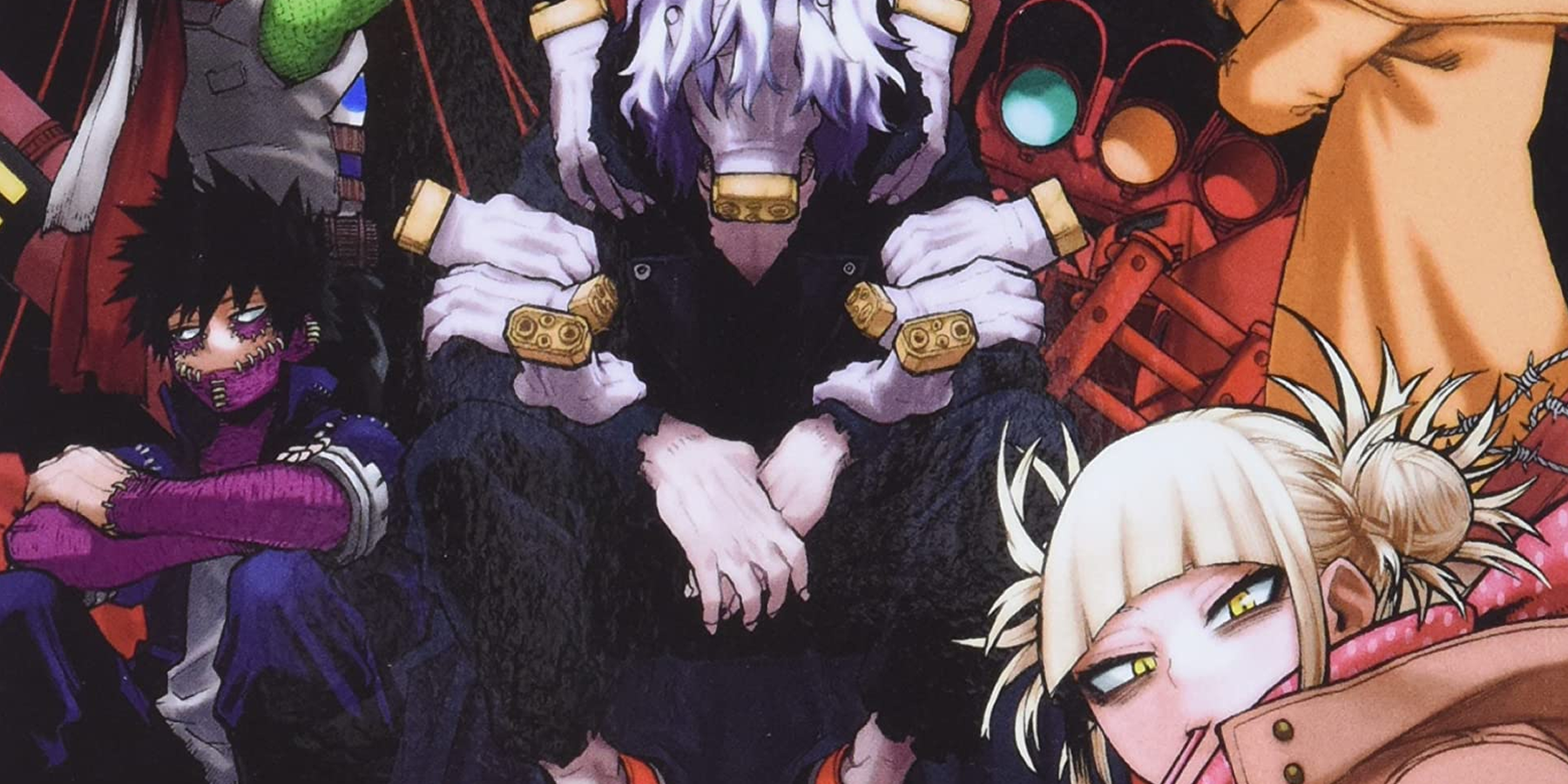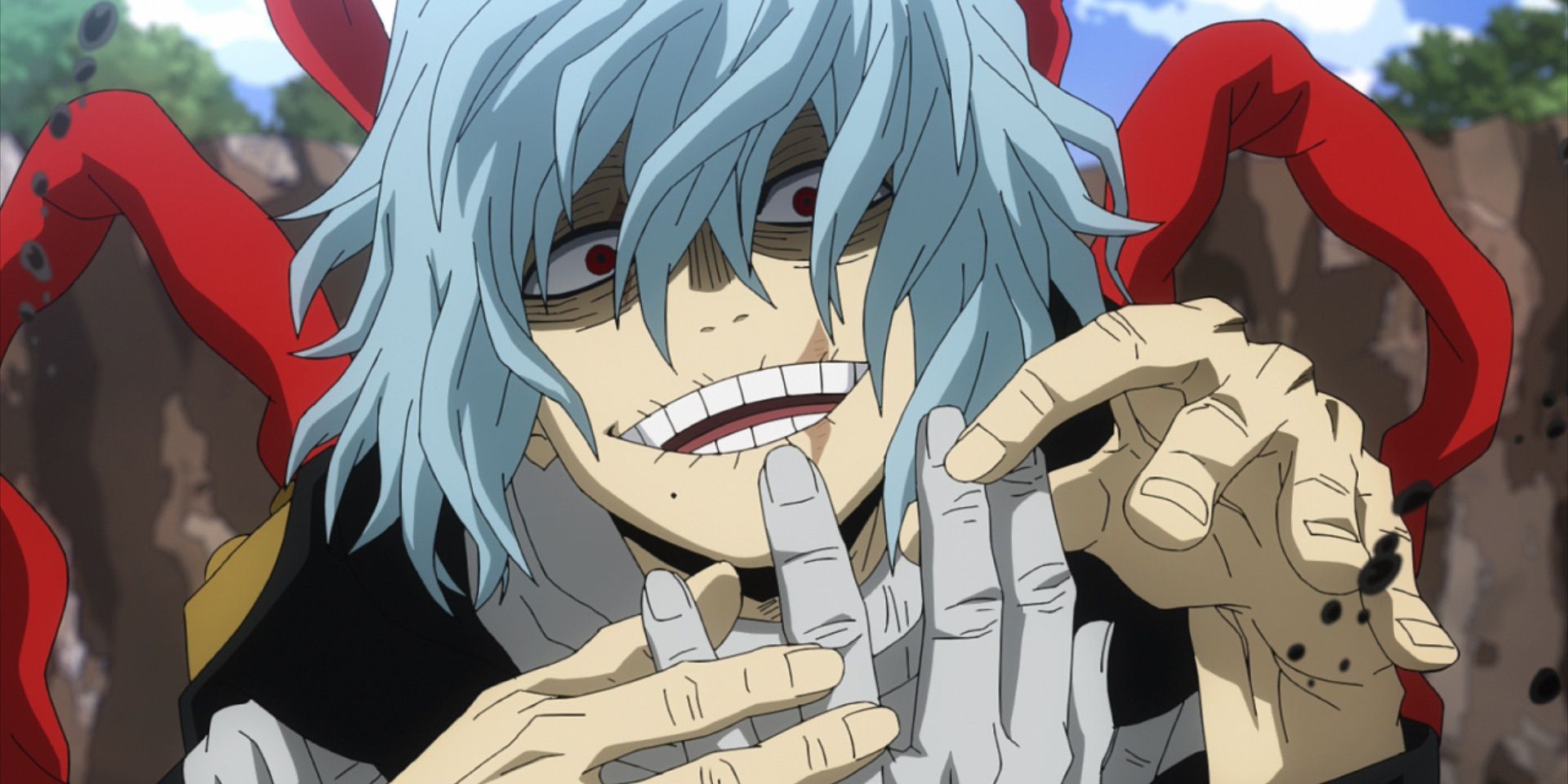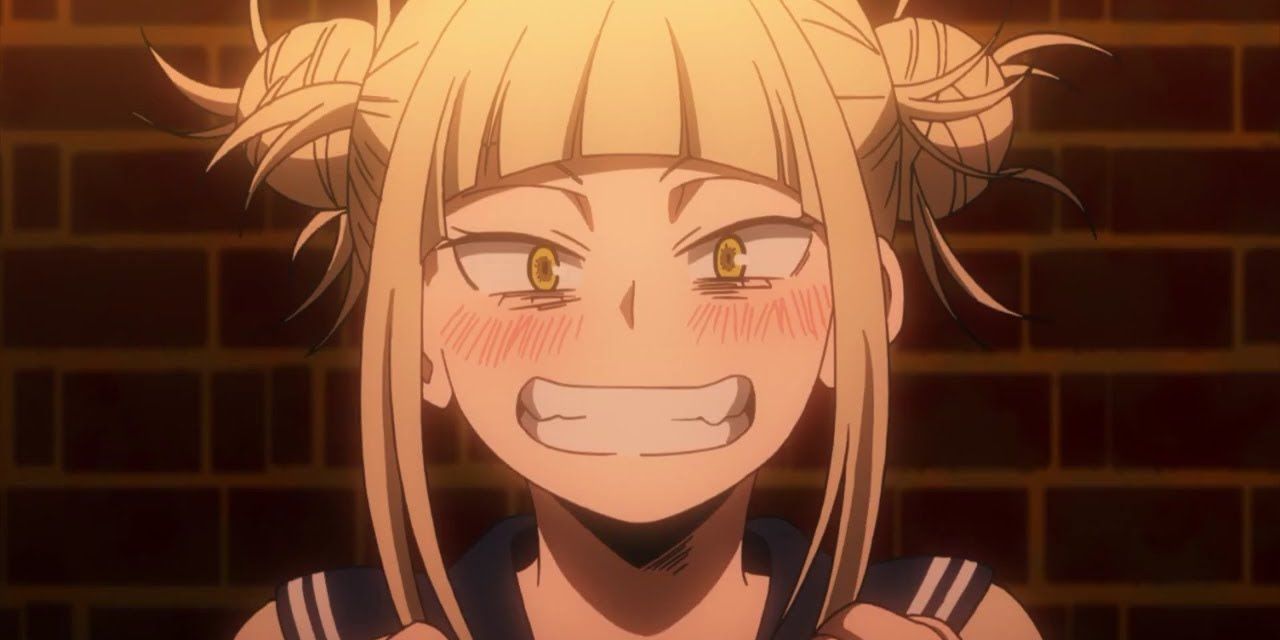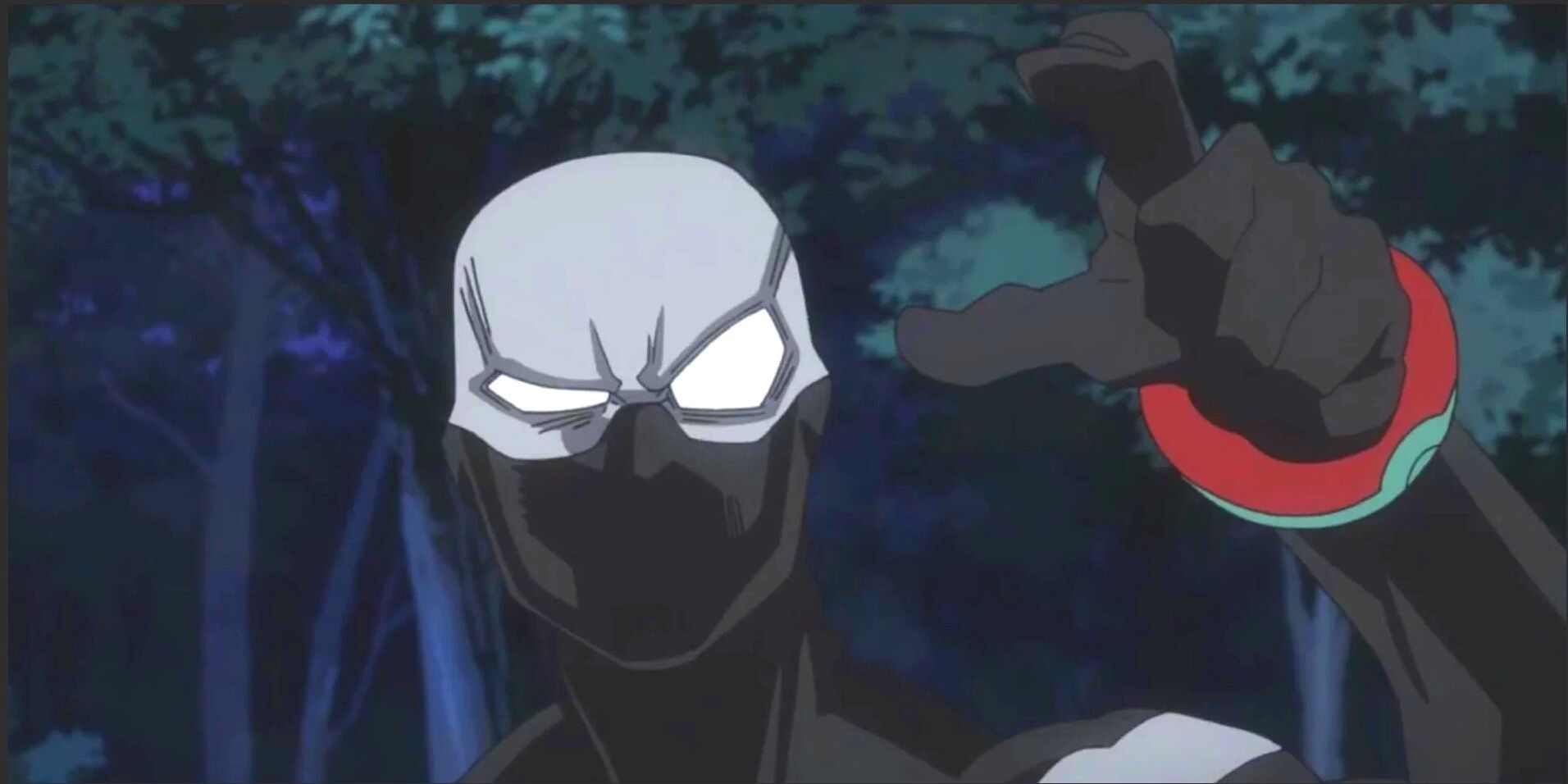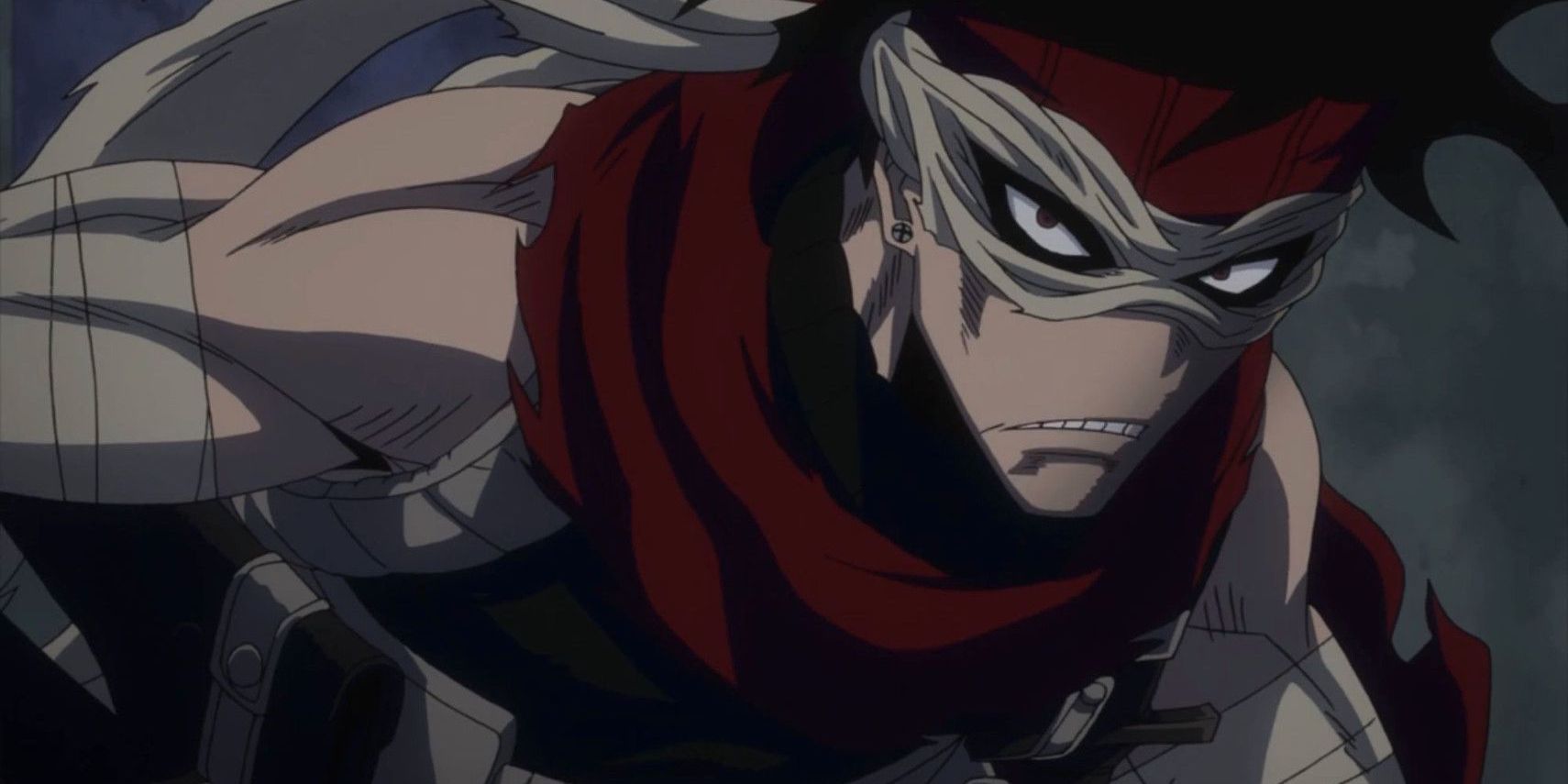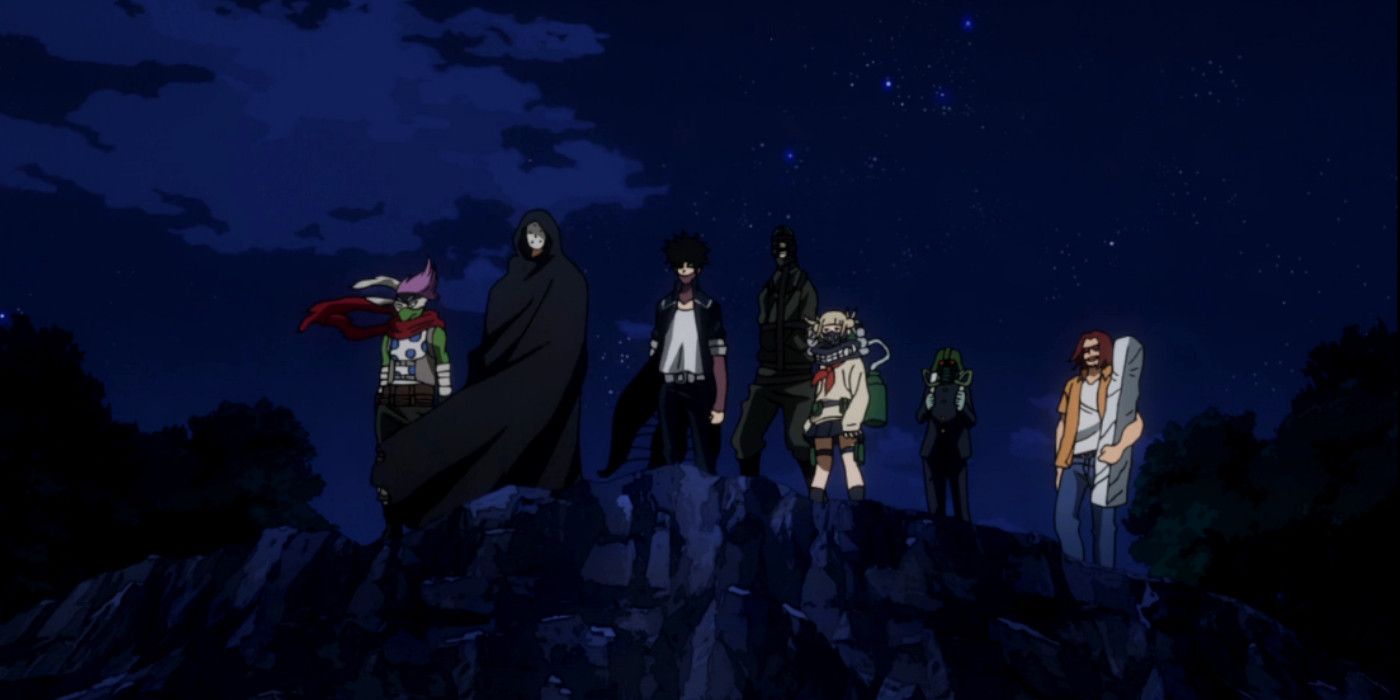The villains of My Hero Academia, specifically the League of Villains, seem to be relatable. They aren’t black and white. Many of them have morals in the gray area - they might kill people but their reasons for being villains aren’t bad - that is to say, it’s hard to argue with them.
When taking a closer look at the League of Villains, they look more like a ragtag band of unfortunate people who were wronged by hero society. My Hero Academia portrays many villains this way and gives them relatable backstories. This begs an important question: are these people really "villains" or are they simply people with unfortunate circumstances? Viewers might find themselves surprised at how they’re rooting for the villains to have a happy ending, too.
Case 1: Shigaraki Tomura
Tomura Shigaraki didn’t start as a villain. In fact, in season 5, episode 24, it’s revealed he secretly wanted to be a hero when he grew up. Child Shigaraki is a skittish kid who aspires to be like all the cool heroes out there, but can’t reach that dream because his father hates heroes. He hates them to the point that he forbids anyone in the house from talking about them. It’s revealed that this is because his mother was All Might’s mentor, Nana, and she gave him up for adoption because she didn’t want him hurt. To a child, this probably felt more like abandonment - even if Nana didn’t mean it that way. Due to his father’s hatred for heroes, Shigaraki is frequently punished as a child, getting to the point where he has a murderous resentment toward his father.
When his quirk finally develops, it’s absolutely devastating. He doesn’t understand that his quirk disintegrates anything he touches and accidentally kills his entire family. The exception to this accident is Shigaraki’s own father, who he kills on purpose. Viewers might agree that his death was deserved. It’s a heart-wrenching scene where Shigaraki is crying and reaching out to his father - the last person alive in his family - and his father tries to murder him with a crowbar.
Soon after this absolutely devastating scene, Shigaraki is left to wander the streets where nobody helps him. Everyone who sees him makes a comment that a hero should help him soon, but no one does. From the abuse he endured at home, to the devastating quirk, to the lack of help after the fact, Shigaraki can’t help but not trust the heroes he once looked up to. As he sits alone in the rain, All For One reaches a hand out to him. He offers help and a place to stay which kid Shigaraki gladly accepts. Since no one else would help him because they were afraid of him, it’s no wonder he becomes a villain. All for One is like a father that Shigaraki never had, and he is convinced that his way of life must be the right way.
Case 2: Himiko Toga
Himiko Toga has what most characters in My Hero Academia would call a villainous quirk. Her quirk involves drinking other people’s blood to become that person. Her strange tendencies toward blood started as a child where she’s shown trying to drink the blood of a dead bird. Her mother can be heard off-screen telling Toga to stop doing that because it’s gross and weird. After the initial reactions to her quirk, she decides to hide it. It’s hinted that her quirk creates an urge for her to drink blood, which she ignores for most of her life until high school. According to most of her high school friends, she was normal in every way until she accidentally murdered a classmate when she couldn't stand the urges anymore. She basically becomes a villain because of her quirk.
Toga is shown saying that she became a villain because she wants to have fun and live her life the way she wants. Her reasoning gets a weird reaction from Spinner, who feels he has more noble reasons for becoming a villain than Toga. While her backstory and reasons aren’t quite as gut-wrenching as Shigaraki’s, they make sense. Toga could have potentially gotten some kind of help for her quirk, but with the initial bad reactions she gets from her parents, she was likely deterred from ever doing that. Most people tend to judge another person based on their quirks as well. This can be seen with Monoma and Shinsou, two hero course students who are called villainous solely because of their quirks throughout their lives. Who's to say Monoma or Shinsou wouldn't have become a villain if the right pieces fell into place?
Case 3: Jin Bubaigawara (Twice)
Jin, or Twice as most viewers know him, has a split personality due to his quirk, which lets him create multiple clones of himself. Before turning to villainy, he was an incredibly lonely man who made clones of himself for friends. One day he and his clones end up murdering each other, arguing who the real one is, which leads to his unfortunate, traumatic mental state. Because of his mental issues and split personality, he has a hard time being accepted by society. He turns to the League of Villains for friendship and belonging. During season 5 when fighting the Paranormal Liberation Front, it's revealed that what Twice wants most in the world is to protect his friends. He nearly gives up his own life to save Toga and the others because of everything they did for him. Twice is a good example of someone who became a villain do to being ostracized by society.
What About Other Villains?
Some villains may not have heart-wrenching backstories, but they can’t be completely forgotten about. Spinner, for example, became a villain because he doesn’t believe in hero society. His idol was Stain, who wanted to weed out the unworthy heroes. Stain's high standards for what makes a hero good are incredibly high, especially since he is killing said heroes. This particular view makes Stain seem less likable, but he still makes a good point about hero society. Most villains outside the League of Villains have this anger toward hero society as well. Many of them, such as the Paranormal Liberation Front, became villains because they saw that there was something wrong with the way their world works.
Conclusion
Many of the villains aren’t that different from My Hero Academia’s beloved heroes. What sets them apart from the heroes is that they are breaking the law. Iida actually mentions this in the Hideout Raid Arc, asking how his friends are any different from the villains if they break the law. He’s entirely correct when he says that. Sure, Deku and co. aren't outright murdering anyone, but they break the rules fairly frequently.
At least, they do when Deku is involved. Deku does this because he believes what he is doing is morally right, which is exactly what the villains are feeling. That being said, maybe some villains are still considered villainous because of the other things they do like murdering a bunch of people in one go.
Season 6 of My Hero Academia will air in the fall and hopefully give more insight into why the villains do what they do.

